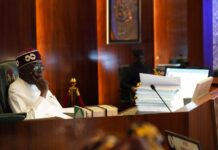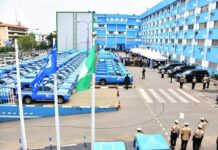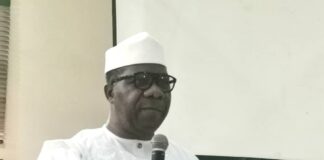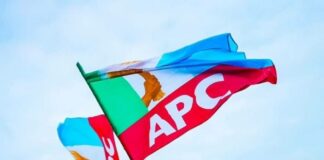Despite promises made during the 2015 election, President Muhammadu Buhari has failed to inaugurate the National Council on Public Procurement, NCPP, as required by the Public Procurement Act 2007 Premium Time NG reports.
Instead, the Federal Executive Council, FEC, under the leadership of the president, continues to usurp the most important function of the NCPP: approval of contracts.
The Public Procurement Act, which was signed into law by late President Umaru Yar’Adua on June 4, 2007 provides for the establishment of the NCPP, and the Bureau of Public Procurement, BPP, as the regulatory authorities responsible for the monitoring and oversight of public procurement as well as harmonising existing government policies and practices.
The Act was put in place to allow transparency and ensure public participation in government procurement.
Mr. Yar’Adua, who signed the Act into Law, however, failed to inaugurate the NCPP until his death in office. His successor, Goodluck Jonathan, who stayed in office for six years also failed to inaugurate the council.
Premium Times NG reported Mr. Buhari has till date also toed the path of his predecessors in violating the law.
For weeks, Premium Times tried to get Mr. Buhari’s spokesperson. Garba Shehu, to explain why the president has chosen to ignore the Act and refused to set up the NCPP; or whether he plans to do so. He repeatedly declined comment on the matter.
NIGERIANS REACT
The failure of the president and his predecessors to put the NCPP in place has been condemned by experts and anti-corruption activists.
A former Minister of Education, Obiageli Ezekwesili, described the refusal of successive governments to inaugurate the council as ”a reflection of the poor governance history of many African countries.”
Ms. Ezekwesili, pioneer head of the Budget Monitoring and Price Intelligence Unit under the Olusegun Obasanjo administration, said the refusal has to do with the, ”priority of those in government.”
“It has to do with the prioritisation, I mean the priority that the political class gives to transactions above vision, strategy and policy,” she said.
“Transactions provide the opportunity for corruption, so they will like to have much more control over that than give it up to some institutional mechanisms like the council.
“How do you begin to explain an illegality that one administration after the other has made since that law was passed in 2007? There is no other way to explain that illegality than to say that there is no incentive on the part of the political class to do what the law technically has recommended.
“That recommendation is the best way to direct the energy of the political class towards the most important activity that should worry them while leaving the council to operate in the way that it was envisaged. So, if they have no incentive to set up the council, it could only be because they are very much interested in transactions and the cabinet ought not to be interested in transactions,” she said.
In his reaction, the Executive Director of Civil Society Legislative Advocacy Centre, CISLAC, Awwal Rafsanjani, said it is unfortunate that the APC administration that came “on the hope of fighting corruption and save the country from total collapse” has also joined the bandwagon in violating the law.
Mr. Rafsanjani said the Public Procurement Act 2007 is one of the “sunshine laws” established under the recommendation of the World Bank in 2001 to help in achieving transparency in the procurement process.
“Central to fighting corruption is the establishment of part one, section one of the Act which is the establishment of the National Council on Public Procurement. This council has the responsibility, among others to translate efforts to sanitise the public sector by applying the content of the law in full.
“Former President Goodluck Jonathan was of course not interested in terms of ensuring that the council is inaugurated and that is how he ended up his tenure without getting that council inaugurated.
“The current government came with all sort of motivation and encouragement that they want to fight corruption, but from what we are seeing, it is unfortunate that the government appears to have forgotten that one of the major things that they need to do to fight corruption is through public procurement. You can see the scandal every now and then because of lack of compliance and adherence to the implementation of the Public Procurement Law in Nigeria,” he said.
Mr. Rafsanjani said almost all agencies of government have experienced one form of scandal or the other “simply because people are not ready to comply with the public procurement law and central to it is ensuring that you have the council inaugurated.
“So, it’s very disappointing that the government that came with the slogan of fighting corruption is not interested in ensuring that the law is implemented”.
A UK based Nigerian activist, Kayode Ogundamisi, also said the refusal of successive Nigerian governments to implement the law is “disappointing.”
”But what is more shocking is the inability of the Buhari government, a government that campaigned on the anti-corruption platform and promised to open government to scrutiny is following in the adverse footsteps of previous governments by failing to set up a National Council on Public Procurement.”
Mr. Ogundamisi said setting up the council will enable the establishment of a regulatory body that will monitor and conduct oversight of public procurement.
“Nigeria spends a huge chunk on recurrent expenditure on the civil service and public procurement has become a nest of corruption and a functional regulatory.
Premium Times NG















